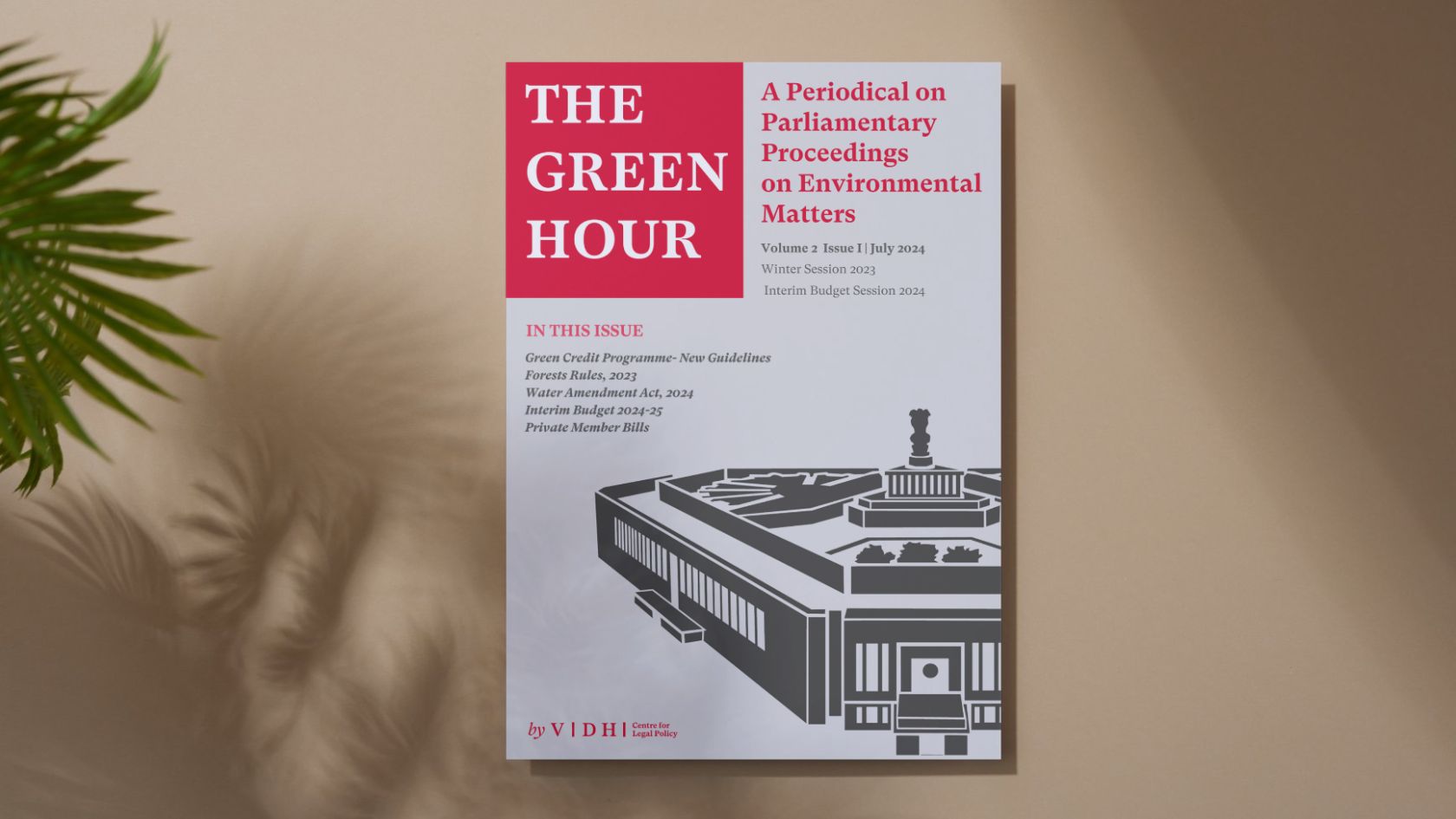
Comments On The Proposed Amendments to The Indian Forest Act, 1927
Submission to Ministry of Environment, Forest and Climate Change, Government of India
On 9th July 2022, the Ministry of Environment, Forest and Climate Change (“MoEFCC”) invited public comments on the proposed decriminalisation of certain offences under the Indian Forest Act, 1927 (“IFA”). In response, Vidhi submitted its comments on 31st July 2022
Amendments proposed to IFA
| Offence | Earlier Punishment | Proposed Punishment |
| Section 26(1) Violations in reserved forests.(c) Kindling, keeping or carrying any fire except at such seasons as the Forest-officer may notify (d) Trespassing or pasturing cattle, or permitting cattle to trespass(e) Causing any damage by negligence in felling any tree or cutting or dragging any timber | 1) Imprisonment up to 6 months, OR2) Fine up to Rs. 500, OR3) Both ANDSuch compensation for damage done to the forest as the convicting Court may direct to be paid. | Under proposed Section 26(1A)1) Fine up to Rs. 500ANDSuch compensation for damage done to the forest as the convicting Court may direct to be paid. |
| Section 33 Violations with respect to reserved trees and contravention of rules pertaining to protected forests.(a) Leaving burning any fire kindled by the person in the vicinity of any tree reserved under section 30, whether standing fallen or felled, or closed portion of any protected forest(b) Felling any tree or dragging any timber so as to damage any tree reserved as aforesaid(c) Permitting cattle to damage any such tree | 1) Imprisonment up to 6 months, OR2) Fine up to Rs. 500, OR3) Both | Under proposed Section 33(1A)Fine up to Rs. 500 |
The proposed amendments make piecemeal revisions to decriminalise select violations and retain the fine of Rs.500 only. Vidhi has suggested that the proposed amendments should be revisited because of the following reasons:
Overarching issues with the IFA
The Government as a monopolistic owner of forests: The IFA perpetuates the colonial notion that the government enjoys a monopoly over forests and their resources, and any other individual is an intruder with no right. In line with the Constitutional principles of independent India, the recent legislative developments and judicial pronouncements, we suggest that the approach of the IFA needs to be revisited to identify the government as a trustee of forests rather than as owners.
- Exploitative understanding of forests: The first two National Forest Policy took an exploitative view of forests. The third National Forest Policy, 1988, however, took a more protectionist view. The IFA needs to be revised to also adopt such a protectionist view towards forests. To this end, even ‘deemed forests’ should be included within its purview.
- Absence of wildlife conservation from IFA’s purview: IFA currently categorises wildlife as a ‘forest-produce’. This is particularly problematic given the fact that 35% of tiger range and 36 mammal species are found in forests that have not been classified as protected areas. Therefore, it is important for IFA to take a holistic approach and acknowledge that forests are used by wildlife as habitats and movement corridors.
- Revising the penalty amount: Currently, the highest fine prescribed under the IFA is a meagre Rs. 500, which has remained the same since 1927, when the Act was first promulgated. This amount is too petty to deter offenders or correct any environmental damage in the present day. The penal framework of the Act should be revised overall to adjust for inflation and bring it in tandem with other environmental legislations.
Specific Issues with the proposed amendments
Lack of clarity on decriminalisation vs. criminal liability with lower punishment:
The proposed amendments do not decriminalise the offences. They continue to be criminal wrongs but without imprisonment as a punishment. There needs to be clarity on whether the intent is to truly decriminalise or whether it is to retain criminal liability.
Prescribed penalty of Rs. 500 is too low to be deterrent:
The proposed amendments retain the fine amount of Rs. 500. Several states which have amended these specific provisions over the years have increased the fine amount. It is extremely important for the Centre to set a high penalty amount in the legislation to deter offenders, make good the environmental damage and inspire state governments to also amend their legislations and prescribe a higher penalty amount.
Penalty needs to account for the damage caused:
Two of the offences for which imprisonment has been proposed to be removed are the (i) causing of any damage by negligence in felling any tree or cutting or dragging any timber in reserved forests, and (ii) causing damage to any reserved tree while felling any tree or timber. The prescribed penalty should account for the damage caused to the forest and its resources.





